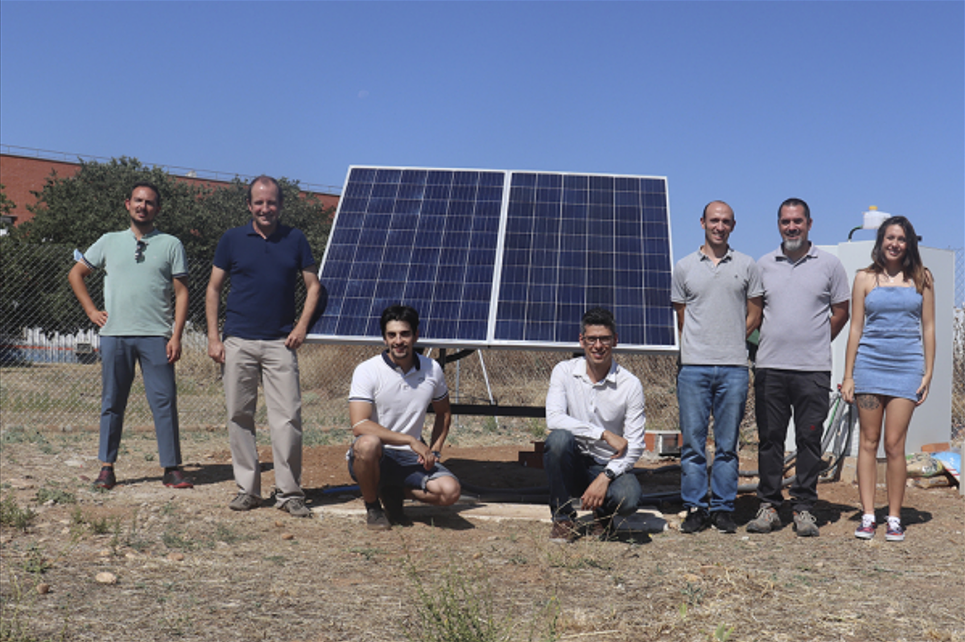UAH research aims to improve solar panel efficiency thru geothermal cooling
By using geothermal cooling, a research team from the University of Alcala in Spain has developed a prototype solar panel with up to 14% higher efficiency.
A research team from the University of Alcala (UAH) in Spain has developed a prototype solar panel with integrated geothermal cooling, connected to a shallow borehole. With this prototype, the research team has observed efficiency improvements of up to 14% – a significant step for the photovoltaic solar energy technology. The research paper can be accessed here.
Ignacio Valiente form the Mechanical, Electrical, and Thermal Technologies Research Group is leading the research team working on the project “Sustainable improvement of energy efficiency of solar panels through a modular geothermal cooling system.” The project was financed by the community of Madrid after the 2019 call for young researchers. The research was also recognized as the best entry during the 2022 Conference on Renewable Energy and Environment Engineering.
The research team focused on photovoltaic solar energy as it was the cheapest source of renewable energy. Despite the low costs, the low efficiency of solar panels remains a major limitation. Based on the energy received by solar panels and their output electricity, the efficiency typically does not exceed 20%, with much of the waste energy converted to heat.
By recognizing that the subsurface has a stable temperature of about 15 degrees Celsius, the research team proposed a cooling system for the panels connected to a shallow geothermal reservoir. A prototype was then built with a solar panel that had an integrated heat exchanger at the rear. This was then connected to another heat exchanger located 15 meters underground. A small pump circulates the cooling fluid through the system.
With the system, the team has observed solar panel temperature reductions of up to 20 degrees Celsius and net system efficiency improvements of up to 14%. As the heat from the panels is minimal, the temperature of the subsurface reservoir remains relatively constant.
The prototype solar panels are not installed at the Polytechnic School of the University of Alcala where their performance is being compared to standard panels. The research team has also received interest from companies for the technology but the team states that more research needs to be done before to lower the technology’s manufacturing, operation, and maintenance costs.
Source: University of Alcala


















